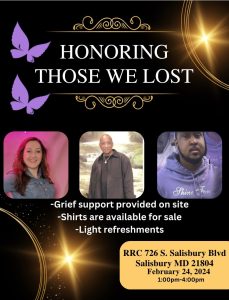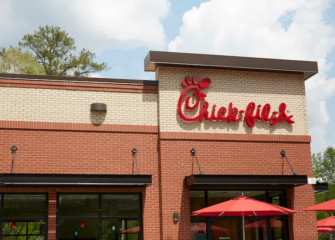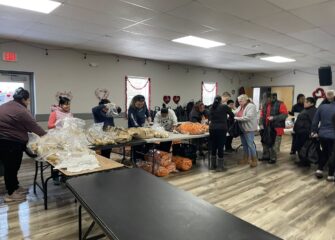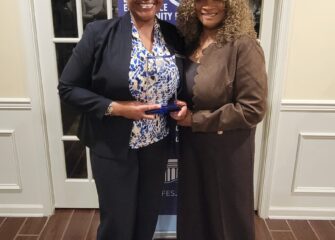
The Recovery Resource Center recognizes that there is a need for us to come together to honor the loved ones we have lost to addiction, but also to honor ourselves for our own loss and grief.
The Recovery Resource Center works to shatter the stigma of addiction and recognizes that addiction crosses all lines of race, religion, age, sex, culture, ethnicities, income, social status, or education. The plaques are hung together with no identifying information and no reference as to how they died. They were all loved by their families and friends, and valued members of the Recovery Resource Center.
On February 24, 1:00 – 4:00 PM, the Recovery Resource Center will host “Honoring Those We Have Lost.” This event will recognize those lost on the Wall of the Honored, a wall of plaques that honors those that have either died clean/sober or directly from addiction.
Those wishing to honor a lost loved one may order a plaque to be hung on the Wall of the Honored.
During the event, Coastal Hospice’s Survivor Outreach Bereavement Services (SOBS) will be available for support. This group works with those that have lost someone to addiction whether they were supported by Coastal Hospice. Coastal Hospice offers free individual sessions (up to 3) and weekly group sessions at the Recovery Resource Center.
For more information about the Coastal Hospice Survivor Outreach Bereavement Services, call the RRC or contact Alvin Harmon at 410-742-8732, ext. 440 or aharmon@coastalhospice.org.
The Recovery Resource Center is located at 726 S. Salisbury Blvd., Ste E, Salisbury, MD 21801.
For more information on the Recovery Resource Center or the “Honoring Those We Have Lost” event, visit https://www.rrcsby.org/ call 410-749-9482 or email Lisa at lisa@rrcsby.org or Crystal at bradleylynette34@gmail.com.
About The Recovery Resource Center
The Recovery Resource Center is a local, life-saving non-profit dedicated to addressing the recovery needs of those who struggle with addiction.
Often, the journey towards recovery begins at an inpatient or outpatient facility. After completing clinical treatment, the recovering individual needs to learn how to rejoin the community. That means changing patterns of behavior, learning new life skills, and becoming a contributing member of society.
The Recovery Resource Center helps with that re-integration by providing a safe space for the recovering individual to learn valuable life-skills, while building a fundamental network of support. They stand resolutely as the center of the recovery community in Salisbury, Maryland.




